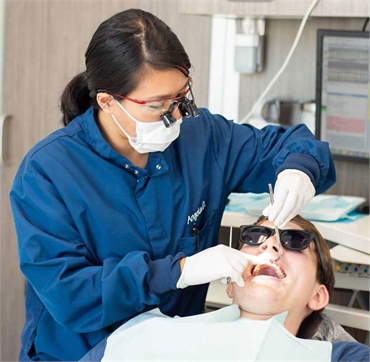Navigating Wisdom Teeth Extraction A Guide to What Comes During and After

Wisdom teeth removal sounds daunting because it creates fear among many individuals; some people get worried about the fear of pain or concerned areas during and after the process.
Introduction
Wisdom teeth removal sounds daunting because it creates fear among many individuals; some people get worried about the fear of pain or concerned areas during and after the process. Remember that wisdom teeth removal is a common routine procedure performed by dental professionals who prioritise the well-being and comfort of individuals. So, before creating any confusion, it is better to understand your relevant concern to alleviate teeth-related problems.
Before Initiating the Process
Before initiating the wisdom teeth extraction process, your healthcare experts will guide you about the procedure and discuss all possible options. Also, they may ask you to perform X-rays to get a clear picture of teeth structure or any broken fracture and then decide the best approach for wisdom teeth extraction. Dental professionals will suggest some instructions you must follow before the surgery, such as fasting or not drinking water for certain hours.
During the Procedure
On the day of wisdom tooth extraction, your healthcare experts may give you anaesthesia to put you in a comfortable situation during the process. However, general, regional, and local are three different types of anaesthesia that your dentist will give you according to your health preferences. The walk in dentist will eliminate your wisdom teeth carefully when anaesthesia starts working. The duration of wisdom teeth extraction may vary from person to person or affected area, but it is a quick recovery process compared to other dental treatments. There is a high risk of wisdom tooth extraction infection after the completion of treatment.
Immediate Aftercare
Just after the successful completion of wisdom teeth extraction, you might feel dizzy from the dose of anaesthesia for a certain period. So, the healthcare professional will tell you how to care for the extraction areas. However, dental care professionals may suggest you bite into gauze to stop the bleeding and lessen the swelling. You can ease ice packs by applying them on your cheeks to lessen swelling in the treated area.
Managing Discomfort
It is common to feel pain or discomfort just after a wisdom teeth extraction procedure is completed. Your healthcare expert may suggest pain relievers such as ibuprofen to reduce the pain. You need to follow their instruction carefully; otherwise, there are risks of enhancing bleeding.
Dietary Choice
Just after the successful completion of the process, restrict to soft food items like upma, yogurt, and pudding in the starting days. Don’t eat hot, cold, or hard food that damages the affected areas. Once you have recovered fully, you can return to regular food in your diet.
Conclusion
The idea of extracting teeth may be wrecking for some people, but gathering more and more information about the process in advance helps to ease your tension. It is essential to follow the pre-and post-operative instructions to make the dental treatment journey smoother and accessible. If you experience any issue like pain or discomfort throughout the dental treatment, don’t hesitate to consult an emergency dentist near me and ask for suggestions from dentists, as they are with you at every stage during the healing phase.

